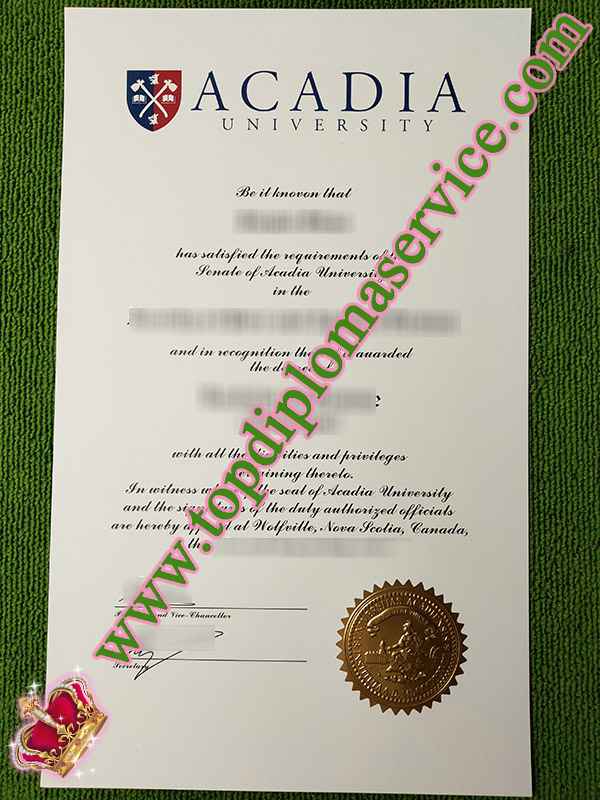
At Acadia University, students spend less time commuting and more time community-building: almost half of the student body lives on campus. The 100-hectare site in the Annapolis Valley has ivy-covered walls and sloping lawns dotted with trees. A student-run farm supplies vegetables and herbs. A new vertical growing system, housed in a shipping container, produces greens year-round for healthy, sustainable eating. Many of Acadia’s research spaces were recently modernized, including the revamped Acadia Science Complex. Students can study birds on the university’s private island wildlife reserve and access specialized labs for biomechanics and food and beverage analysis. Make a Acadia University certificate, buy Acadia University diploma, replica Canada diploma.
“Acadia’s strength is the blending of community engagement with classroom learning,” says president Peter Ricketts. “Our students learn by immersing themselves in the world around them—but they get to define their world. From renewable energy to community development to social justice, our students graduate as leaders of change.”
Students in most arts programs can pursue co-op work placements; then they can graduate with a year of professional experience. On average, 98 per cent of co-op students landed work terms throughout 2020. Students can connect with staff, alum and community members through the Acadia Café, an online networking program, or volunteer in the sensory motor instructional and leadership experience (SMILE) program, which helps youth with disabilities participate in physical activities. At the end of the day, students can cheer on one of the school’s 11 varsity sports teams.


